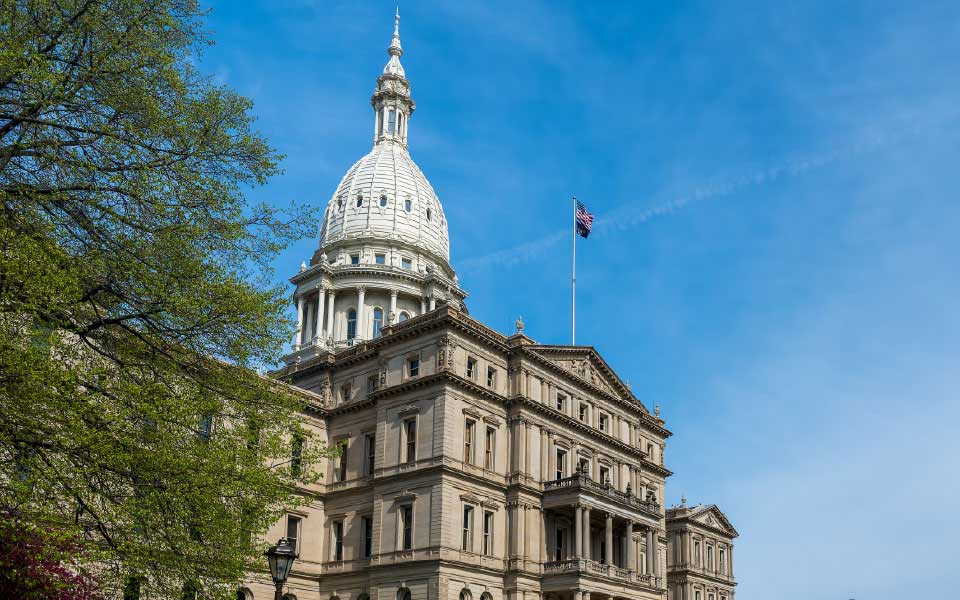On Nov. 12, 2025, the Pennsylvania Legislature passed the Commonwealth’s 2025-2026 budget which was constitutionally due on June 30. It was immediately signed into law by Gov. Shapiro as Act 45 of 2025 (the Act). The Act calls for $50.1 billion in spending, $2.5 billion more than the 2024-2025 budget but $1.3 billion less than what the governor had proposed in March.
Decoupling from the One Big Beautiful Bill Act’s (OBBBA) Business Deductions for C Corporations
Though typically a “rolling conformity” state which automatically follows federal tax laws as they become effective, the Act “decouples” Pennsylvania’s Corporate Income Tax law from several business-friendly provisions of the OBBBA as follows:
Domestic Research & Experimental Expenditures
The OBBBA permits businesses to immediately expense expenditures for domestic research and experimental (R&E) activities. Although businesses had previously been required to capitalize and amortize their R&E costs in tax years 2022-2024, they are now permitted to immediately expense their remaining “basis” in these costs on their 2025 tax returns, and certain small businesses may go back and amend their 2022-2024 tax returns.
The Act requires corporations to add back to Pennsylvania taxable income any amounts related to domestic R&E costs, including federal amortization deductions and federal deductions related to a change in accounting method for R&E. Any amount added back to taxable income is then amortized for Pennsylvania income tax purposes over a five-year period, with 20% of the add-back amount being deductible each year beginning with the year of the add-back.
The overall effect of this provision is that corporations incurring R&E costs and doing business in Pennsylvania will be required to capitalize and amortize their domestic R&E costs over a five-year period for Pennsylvania tax purposes, whereas they may immediately deduct them for federal purposes. Also, corporations that incurred R&E costs in years prior to 2025 will be required to capitalize any federal deductions claimed with respect to them and amortize them over five years as well, thereby potentially stretching out their Pennsylvania tax deductions for some costs over eight or even more years instead of five years.
Limitation on Interest Expense
The OBBBA changes the calculation of adjusted taxable income (ATI) under section 163(j) to allow for an add-back for federal depreciation and amortization expense, effectively increasing the amount of interest that a business can deduct to 30% of its EBITDA as calculated under federal income tax principles. The Act requires businesses to calculate their business income deduction under pre-OBBBA principles in which depreciation and amortization are not added back and included in the definition of ATI.
The effect of this provision is that corporations doing business in Pennsylvania and incurring interest expense may have a significantly lower interest deduction for state tax purposes than they have for federal tax purposes. This could especially affect capital-intensive businesses with significant amounts of depreciation and amortization deductions.
Deductions for Qualified Production Property
The OBBBA allows businesses to elect to immediately expense the cost of Qualified Production Property, (i.e., certain domestic production facilities, such as factories, mills, plants, etc.), that they would otherwise have to depreciate over periods of up to 39 years.
The Act requires corporations that elect to deduct the cost of QPP on their federal tax return to add the federally claimed deduction back to Pennsylvania taxable income and replace it with depreciation deductions calculated as if the OBBBA had not been enacted, thus stretching the recovery of the cost of production facilities out over several decades.
Only C Corporations Affected
It is important to note that the provisions of the Act as described above only affect businesses that are taxed as C corporations. Since Pennsylvania’s personal income tax law is purposefully not tied to federal tax principles in most instances, individuals, fiduciaries and pass-through entities (partnerships and Pennsylvania S corporations) are not affected by these law changes. Accordingly, if they choose to calculate their Pennsylvania taxable income using federal income tax law, they don’t need to make any modifications to their Pennsylvania taxable income for R&E costs, interest or deductions for QPP.
Pennsylvania is not the only state to enact “decoupling” legislation, nor will it be the last. Rhode Island, Michigan, and Maryland have all announced decoupling from some or all federal OBBBA provisions. The Delaware and Indiana legislatures are now in special sessions to consider decoupling, and we expect several more states to decouple from OBBBA provisions in the coming months.
Should you have any questions about Pennsylvania’s or any other state’s conformity to the OBBBA, please contact a CBIZ SALT expert.
© Copyright CBIZ, Inc. All rights reserved. Use of the material contained herein without the express written consent of the firms is prohibited by law. This publication is distributed with the understanding that CBIZ is not rendering legal, accounting or other professional advice. The reader is advised to contact a tax professional prior to taking any action based upon this information. CBIZ assumes no liability whatsoever in connection with the use of this information and assumes no obligation to inform the reader of any changes in tax laws or other factors that could affect the information contained herein. Material contained in this publication is informational and promotional in nature and not intended to be specific financial, tax or consulting advice. Readers are advised to seek professional consultation regarding circumstances affecting their organization.
“CBIZ” is the brand name under which CBIZ CPAs P.C. and CBIZ, Inc. and its subsidiaries, including CBIZ Advisors, LLC, provide professional services. CBIZ CPAs P.C. and CBIZ, Inc. (and its subsidiaries) practice as an alternative practice structure in accordance with the AICPA Code of Professional Conduct and applicable law, regulations, and professional standards. CBIZ CPAs P.C. is a licensed independent CPA firm that provides attest services to its clients. CBIZ, Inc. and its subsidiary entities provide tax, advisory, and consulting services to their clients. CBIZ, Inc. and its subsidiary entities are not licensed CPA firms and, therefore, cannot provide attest services.















